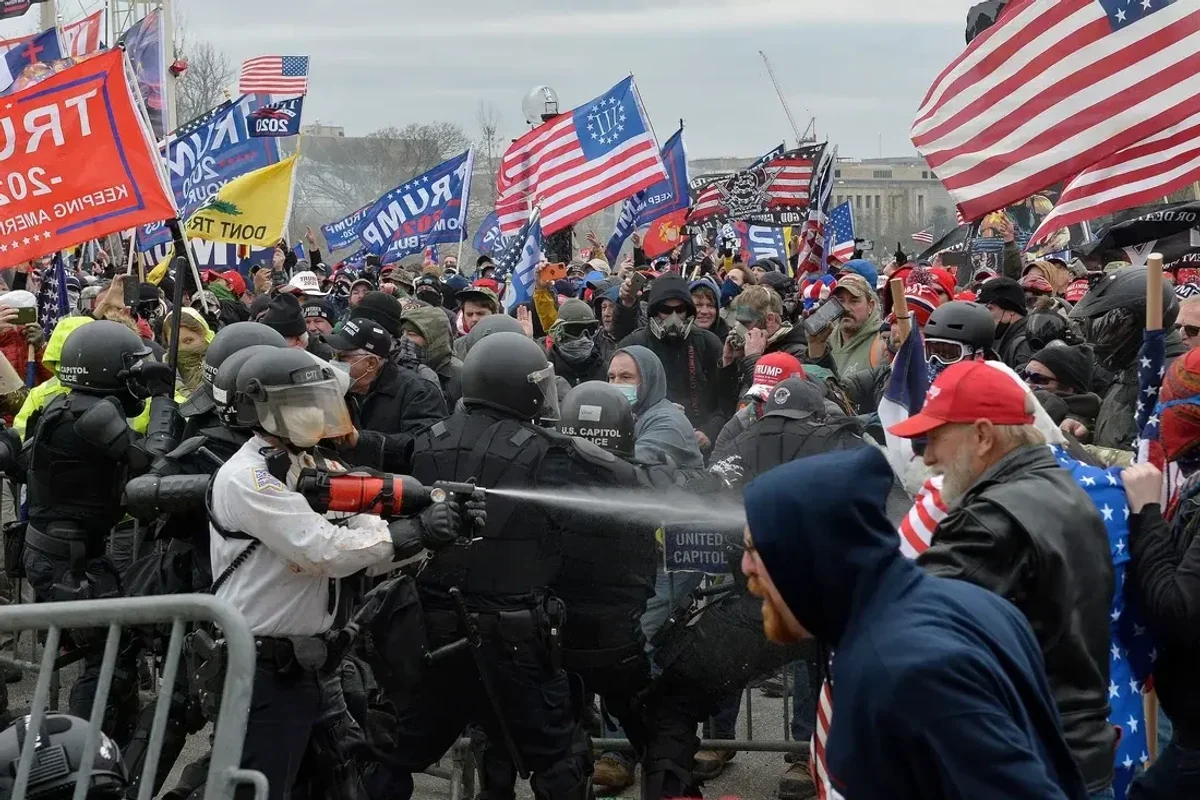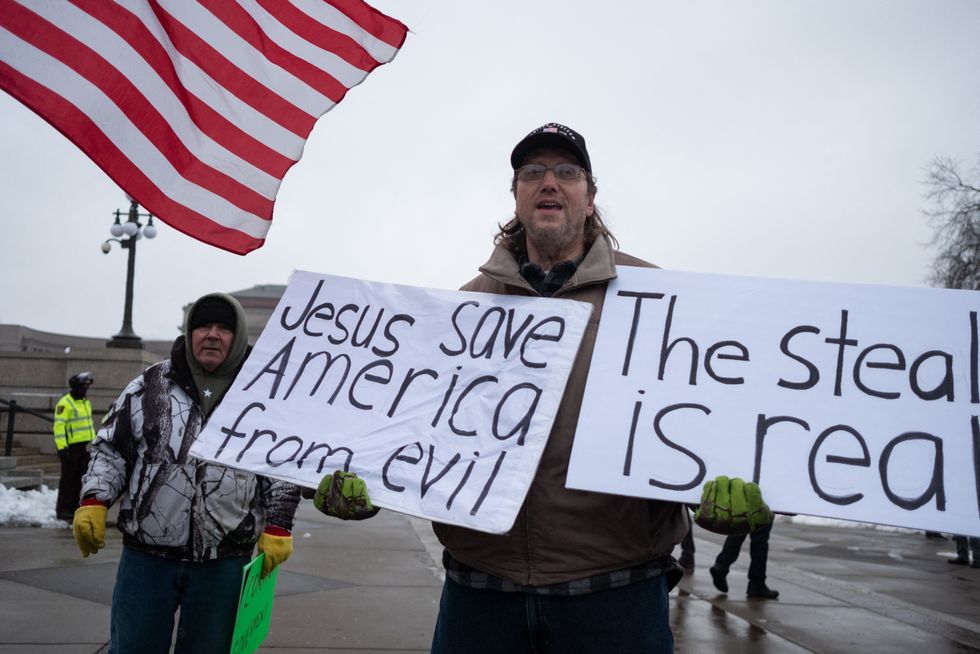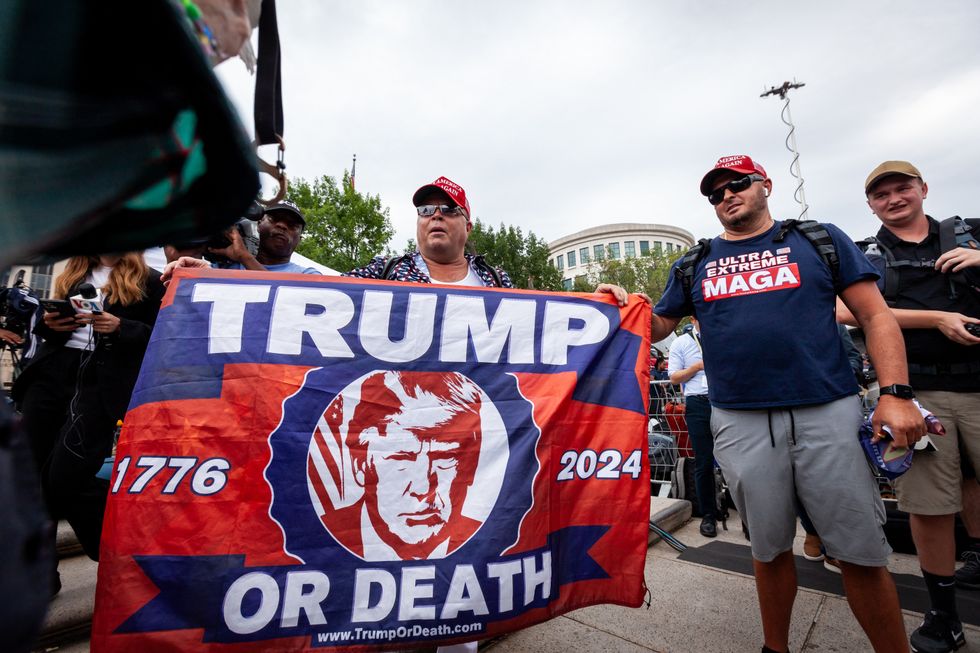US braces for potential violence around 2024 presidential race
Study finds 20% of Americans view political violence as potentially justified
Sheraz Khan
Senior Producer, Monitoring Desk
Sheraz Khan Rajput is a veteran journalist with nearly two decades of experience in broadcast and digital media, specializing in breaking news, scriptwriting, research, and fact-checking.

Trump supporters clash with police and security forces as they try to storm the Capitol in Washington, D.C. on January 6, 2021. Demonstrators breached security and entered the Capitol as Congress debated the 2020 electoral vote certification.
AFP
Armed "poll watchers" expected to resurface from 2020
Militia groups now in smaller, harder-to-track cells
76-day post-election period seen as most volatile
As the 2024 U.S. presidential election nears, domestic extremist groups and radicalized individuals are increasingly viewing the electoral process as a potential flashpoint for civil conflict.
Reports from the Department of Homeland Security (DHS) and public policy institutes such as the International Crisis Group and RAND Corporation identify multiple risk factors, with some extremists openly discussing armed responses to perceived election threats on social media and encrypted platforms.
The political context
The 2024 presidential race features former President Donald Trump and Democratic nominee Kamala Harris. With polls showing a tight race, security agencies are particularly focused on preventing violence before, during, and after the election.
The Department of Homeland Security (DHS) has documented increased extremist activity online, particularly among groups promoting civil conflict narratives.

Recent polling from the University of Chicago's Institute of Politics reveals approximately 20% of Americans believe violence could be justified to "save" the country.
DHS has also noted a marked increase in encrypted communications among extremist groups, complicating surveillance efforts.
Instances of election-related violence have been widely publicized in the media, including a case in California where a man allegedly killed his father, a federal government employee, over extremist political beliefs.
Election Day security
In 2020, self-appointed "watchdogs" and armed partisan observers created tension at polling places across multiple states, with particularly volatile situations in Arizona, Michigan, and Pennsylvania where armed individuals monitored ballot drop boxes and confronted voters.
This year, agencies are particularly concerned about potential intimidation at polling locations by self-appointed "election integrity" monitors.
They also anticipate potential confrontations between opposing political groups, similar to the clashes seen outside vote-counting centers in 2020.
The rise in organized militia activity and the increasingly sophisticated use of social media to coordinate poll-watching efforts have complicated security planning.
Extremist group activities
The current political landscape in America has been significantly shaped by the aftermath of the January 6, 2021, Capitol building attack and subsequent law enforcement actions.
Trump supporters stormed the U.S. Capitol on the day, after his "Stop the Steal" rally, violently disrupting Congress's certification of the presidential election results.

While major prosecutions have disrupted traditional militia groups, with over 1,200 people charged and hundreds convicted for their roles in the Capitol attack, this has led to an unexpected evolution in extremist organizations.
Two groups that emerged as central to the January 6 attack, the Proud Boys and Oath Keepers - despite having their leadership largely imprisoned - have adapted rather than dissolved.
Their remaining members have splintered into smaller, more difficult-to-track cells, often operating at a local level. These groups have also increasingly shifted their communications to encrypted platforms like Signal and Telegram.
While the largest organizations have been weakened, the overall movement has become more resilient and harder to predict.
Post-election period: ‘76 dangerous days’
The period between Election Day and Inauguration Day—termed the "76 Dangerous Days" by RAND security expert Brian Michael Jenkins—presents unique risks.
During this window, the slow process of vote counting - especially mail-in ballots which typically lean Democratic - can create what Jenkins calls a "red mirage" where initial results in favor of Republicans may shift significantly towards the Democrats as mail-in ballots are counted, providing fuel for fraud allegations.
Jenkins warns that the extended uncertainty during this period provides ample opportunity for organized protests to escalate into violence, particularly as state legislatures meet to certify electors and Congress convenes to count electoral votes - moments that proved dangerous in 2020-21.
Tensions lie ahead
While law enforcement preparations provide important protective measures, peaceful transitions largely depend on political leaders' commitment to upholding democratic norms.
Recent statements by former President Trump suggesting he should have refused to leave office in 2020, combined with polls showing increasing public acceptance of political violence, indicate that significant tensions may lie ahead.







Comments
See what people are discussing